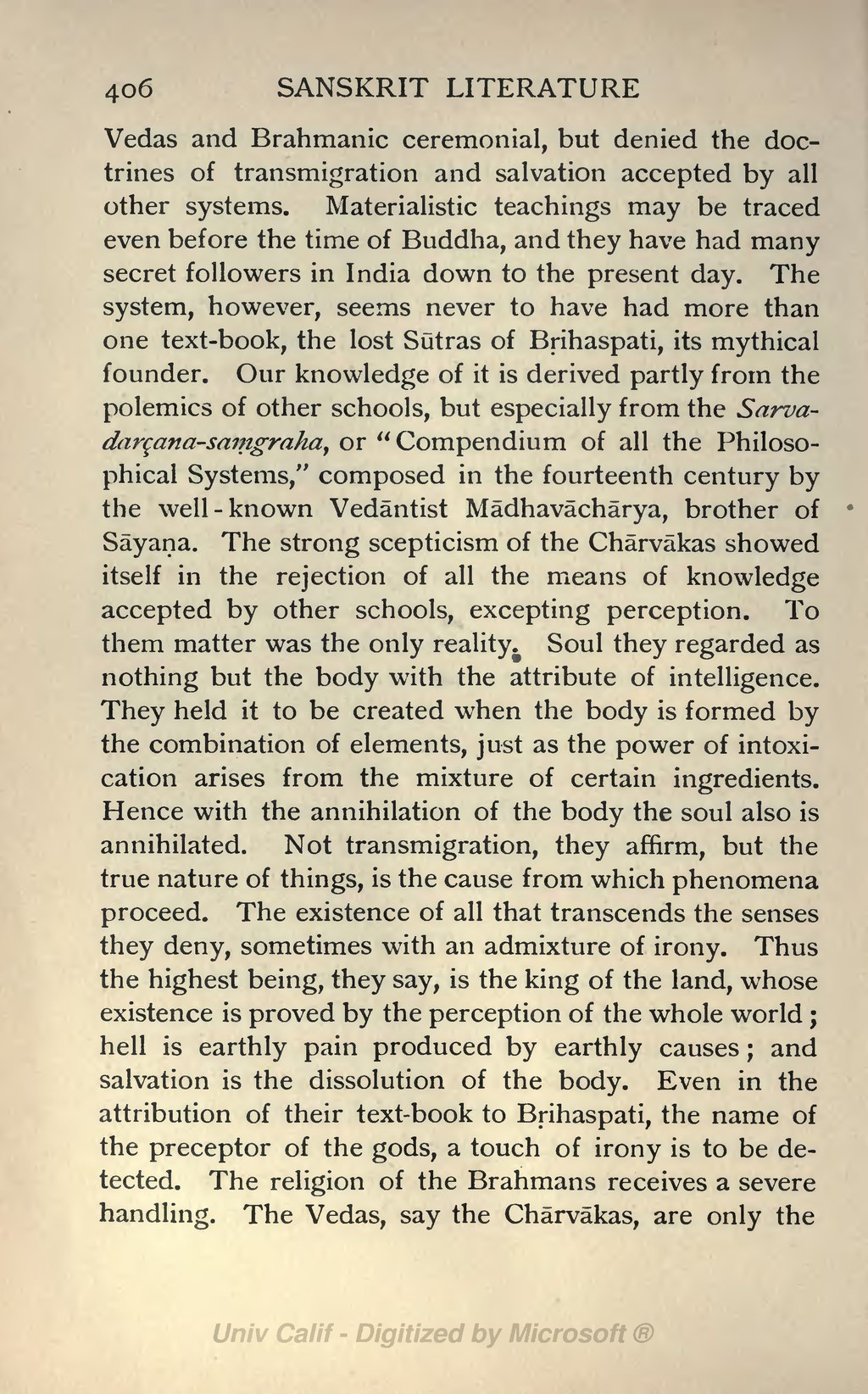Vedas and Brahmanic ceremonial, but denied the doctrines of transmigration and salvation accepted by all other systems. Materialistic teachings may be traced even before the time of Buddha, and they have had many secret followers in India down to the present day. The system, however, seems never to have had more than one text-book, the lost Sūtras of Bṛihaspati, its mythical founder. Our knowledge of it is derived partly from the polemics of other schools, but especially from the Sarvadarçana-saṃgraha, or "Compendium of all the Philosophical Systems," composed in the fourteenth century by the well-known Vedāntist Mādhavāchārya, brother of Sāyaṇa. The strong scepticism of the Chārvākas showed itself in the rejection of all the means of knowledge accepted by other schools, excepting perception. To them matter was the only reality. Soul they regarded as nothing but the body with the attribute of intelligence. They held it to be created when the body is formed by the combination of elements, just as the power of intoxication arises from the mixture of certain ingredients. Hence with the annihilation of the body the soul also is annihilated. Not transmigration, they affirm, but the true nature of things, is the cause from which phenomena proceed. The existence of all that transcends the senses they deny, sometimes with an admixture of irony. Thus the highest being, they say, is the king of the land, whose existence is proved by the perception of the whole world; hell is earthly pain produced by earthly causes; and salvation is the dissolution of the body. Even in the attribution of their text-book to Bṛihaspati, the name of the preceptor of the gods, a touch of irony is to be detected. The religion of the Brahmans receives a severe handling. The Vedas, say the Chārvākas, are only the
